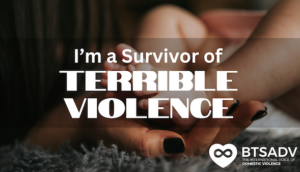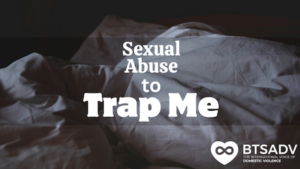“The greater a child’s terror, and the earlier it is experienced, the harder it becomes to
develop a strong and healthy sense of self.”― Nathaniel Branden
People tend to believe that children don’t observe anything. However, they are the best
judge of their surroundings. Children have this sixth sense of feeling, observing, and sensing
things that prove to be a threat around them. When they are being raised in an abusive
household, it is not like they didn’t notice the turmoil in the house; rather they are now
seeking ways to speak about the abuse they are witnessing.
Most of the time, children don’t know how to express themselves, and sometimes they don’t
know to whom to express themselves. They often release their unexpressed feelings and
suppressed emotions through tantrums, and aggressiveness in actions or might engage in
physical fights with others.
There are five ways through which you can help children from abusive relationships come to
terms with the fact of speaking about it without any fear, and remorse.
- Be a leader and a supporter: Your children will not always come to you because they
have developed this fear of getting ridiculed, shamed, and rejected by you. They
might seek your support, so always take the lead and talk to them when you
feel the time is right. Be a supporter of their feelings and assure them that you
understand what they are going through by being empathetic. - Use terminologies like these: Your children haven’t given you birth. You
have given them birth and brought them into this world. It’s your responsibility to
comfort them by using statements like, “I know what you are going through, and I am
sorry that you are feeling this way,” “I care about you, and I know I will do everything
in my power to protect you,” or “I listen to your feelings even when you don’t express
those feelings, and I love you.” Always give them an assured hug, and live by your
words. - Abuse is not their fault: So many times, children believe that their parents are fighting
amongst themselves because of them. They start hiding themselves and wish to
vanish from the face of the earth. Tell your children that abuse is not their fault.
Whatever it is that they are witnessing hasn’t been asked or invited by them. It’s the
way abuse is, and you are going to take steps to segregate them from that abusive
environment. - Don’t unnecessarily burden them: Sometimes parents believe that putting the
burden of support or understanding on their children will help in subsiding the
feelings that emerged out of an abusive environment. However, that is not what
serves the best purpose. You don’t have to burden your children when they are
trying to process the abuse they are enduring along with you. Don’t seek their
support or understanding because they are growing up and will take time to come
out of that depressed zone of life. Be available for them, but don’t seek the same in
return.
- Always prepare them to stand up against the abuse: Parents believe that children
forget about the abuse the following day when they wake up. No, they don’t.
Children start believing that abuse is love when you instill these ideas into their
brains. If you tell them to forget about the abuse because it just happened once or to
become accustomed to it, they start seeking the same in relationships outside of the
abode as well. So, kindly prepare your children to always stand up against the abuse.
They deserve the world just like everybody else.
If it becomes tough to deal with them or to help them at home then please seek
professional help for yourself and your children too. We must build an environment where
we are getting along and raising society as a whole.









